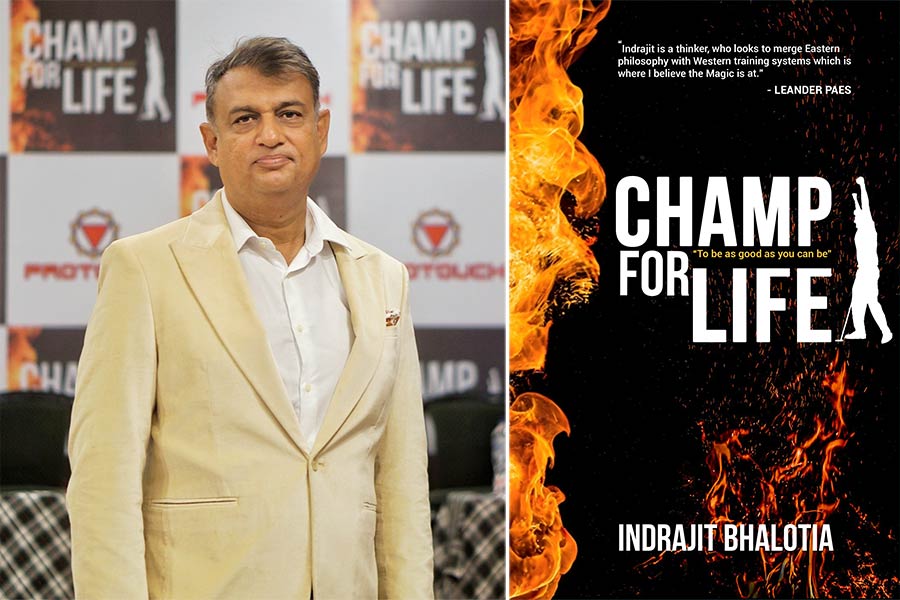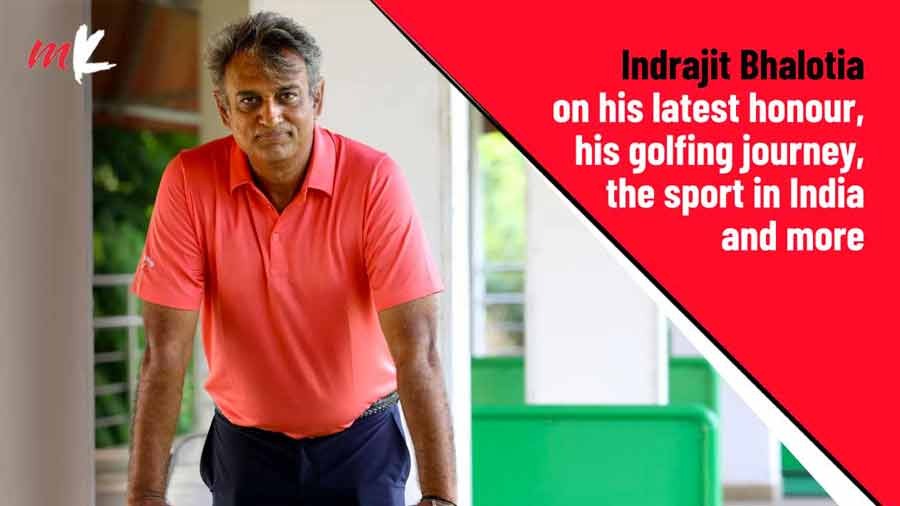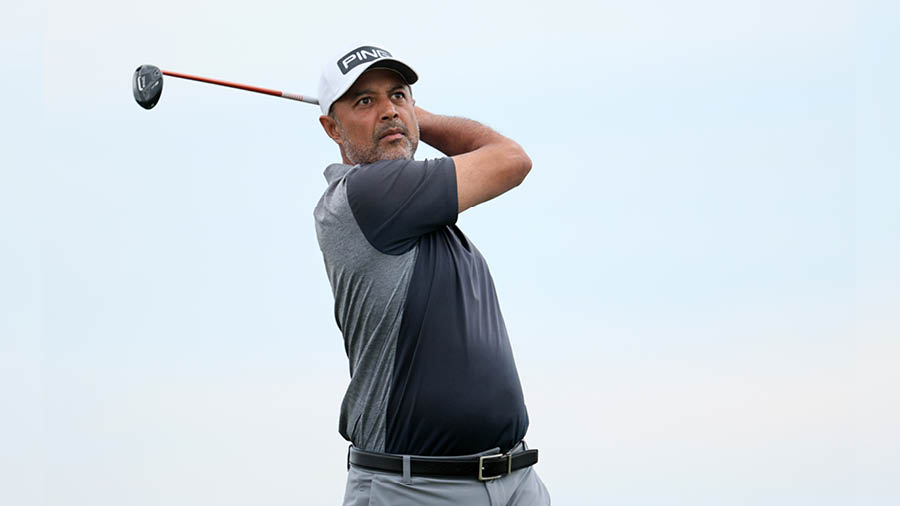India has produced its fair share of champion athletes over the years. But very few of those athletes have tried to explain what makes them champions. Nobody among them has meticulously penned down the secret to sporting greatness in order to pave the way for the next generation of champions. Nobody until Indrajit Bhalotia, the Kolkata-based golf guru whose new book, Champ for Life, documents everything an athlete needs to know to unleash the champion within.
My Kolkata caught up with Indrajit at Tollygunge Club to discuss his reasons for writing the book, how champions master their craft, why Kolkata and Bengal no longer produce many sporting greats, and more. Edited excerpts from the conversation follow.
My Kolkata: What made you decide to write this book? And how long did it take for you to get it together?
Indrajit Bhalotia: I went to Jaidip Mukerjea’s book launch sometime back, the first book launch I’ve ever attended. And it struck me that maybe I should write something myself. Partly because I don’t see sports science going anywhere in this country. We’re so far behind. Plus, I already have so many notes, which I keep referring to when I look at myself or when I’m helping my students. I thought why not document them into a book that can become a manual for athletes.
It took about six months to get the book done. Once the first draft was ready, I felt it needed to sound a bit more like me. So, over three to four days, I rewrote the book in my own words with the help of my colleague, Siya Manna. Everytime I read it, I felt there could be a little more. I’m glad it looks complete now.
‘India’s loss to Australia is a great case study for a sports psychologist’
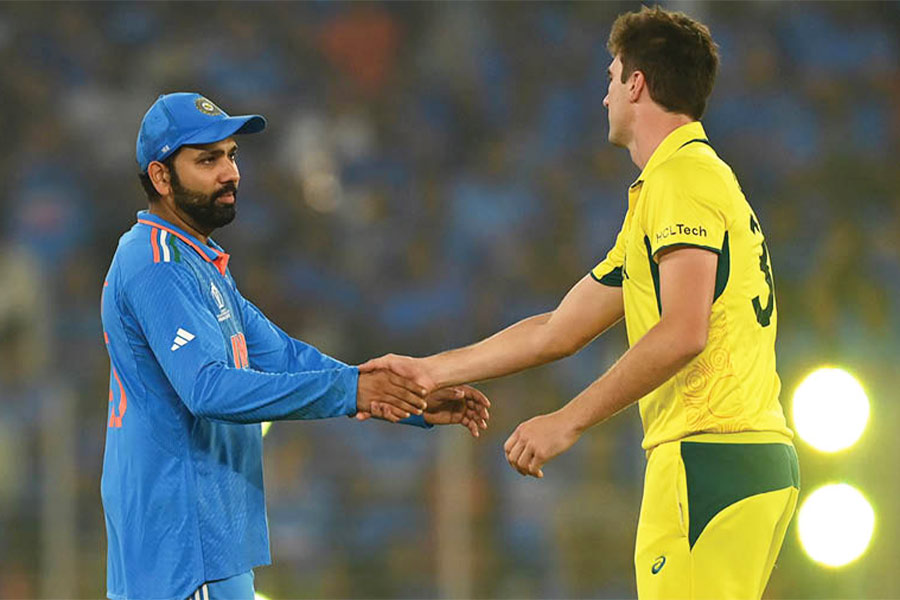
Indrajit feels that India’s loss to Australia in the World Cup final was down to psychological preparation or the lack of it TT Archives
Tell us about your extensive notes. What exactly are they about and how did you get into the habit of maintaining them?
Earlier on in my career, I used to read a lot of sports-related self-improvement books and all of them tell you to maintain records and stats. In our time, back in the ’80s and ’90s, there were no stats kept, not even for tournaments. I started maintaining my own stats alongside keeping track of my thought process. It’s not like writing a diary. That’s not what I kept. Rather, I focused on details connected to performance. When I played well, what was I thinking? When I played badly, what went wrong? What was my mindset like? What was my routine and how much rest did I take?
When I went to a sports science centre in the US in the mid ’90s, they taught me how to keep notes better. My sports psychologist, David Striegel, taught me how to find my peak performance stage, to document my body language and thought process when I was playing well. Playing well doesn’t come by chance, especially on the big day. You need the right psychological preparation for that. If one can simulate the mental condition and body language which have helped an athlete perform well in the past, the chances of performing well again improves drastically. That’s what India seemed to lack [at the 2023 ICC Men’s Cricket World Cup final], as compared to Australia. India’s loss to Australia is a great case study for a sports psychologist when it comes to being prepared mentally.
‘You have to eat, drink, sleep and breathe your goals’
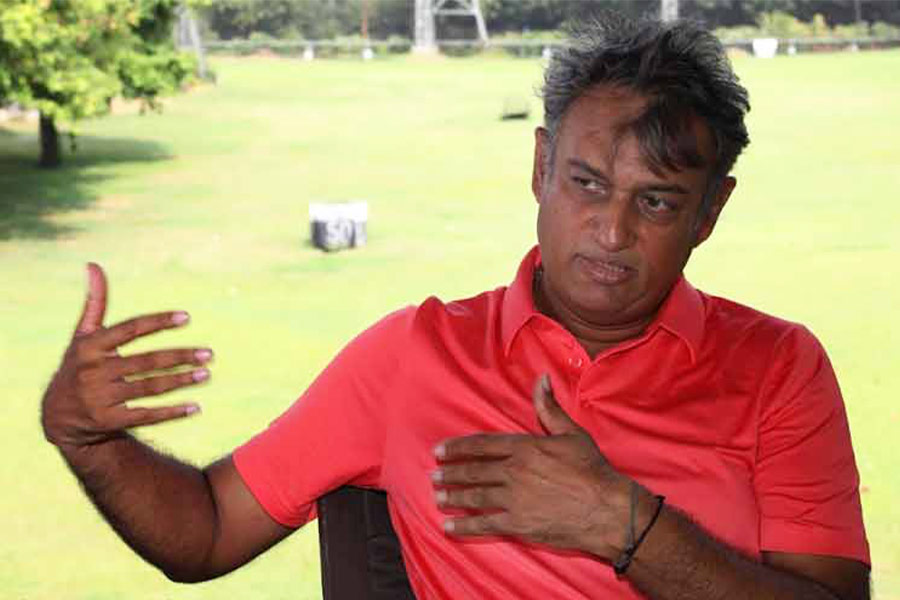
Most athletes fail because they lack obsessiveness, believes Indrajit TT Archives
What are the most important qualities an athlete needs to be a “Champ for Life”?
The most important quality is a clear thought process, to be clear about your objectives. You can’t have any doubts in your mind that you’re going to succeed. It’s almost like taking it for granted that you’re going to succeed. I’ve seen that clarity and positivity with the likes of Arjun Atwal and Leander Paes. Arjun was sure that he was going to win on the PGA Tour, and he’s still the only Indian who’s done it. The second is obsessiveness. Every athlete who’s a world champion is obsessive. Are some of them self-obsessed, too? Yes. But they’re completely obsessed with what they want to achieve. And that goes for everything in life, wherever you want to be the best. You have to eat, drink, sleep and breathe your goals. Most athletes fail because they lack obsessiveness. The third is your discipline, which follows from the obsession anyway.
Mahendra Singh Dhoni is a champion who keeps insisting on prioritising process over results. What is your take on the process/result debate?
What Dhoni is doing is that he’s speaking in terms of a sports psychologist. Interestingly, it’s also what the Gita says. Anyone who understands the mind will tell you to focus on the process. But how do you do that? When you’re standing over a putt that’s worth a national title and Rs 10 lakh, how can you not think about the result? It’s impossible to only focus on the process in those situations. But how do you create a habit where it gives you a better chance of focusing on the process when a lot is at stake? What’s playing under pressure like ? That’s the secret I reveal in the book.
‘The most pressure is when you have time to think about what you need to do’
For the best part of your career, mental health was hardly a talking point in sport. How would you prepare for big tournaments back then?
You have to go into a tournament with what you have, believing that you’re ready to win even if in reality it’s not the case. No one is ever 100 per cent ready for a match and those who go into a match thinking that they could have prepared better will always doubt themselves.
I also tried to ensure that I rested and recovered well. Mental pressure saps your physical energy and vice versa. Apart from that, it was about the process. You practise the process year in and year out and then just focus on repeating it. As a fast bowler, if you’ve focused on delivering the ball from your run-up in four seconds, no matter how important that ball is, you’ll still deliver the ball in four seconds. It’s the same when you’re serving in tennis or executing your swing in golf. Follow the process, trust your muscle memory and things start falling in place. You’ll still fail, but you’ll start succeeding more, too.
Additionally, playing sports like golf, billiards, archery or snooker is always harder. Because you’re creating action out of a static situation. You’re not reacting to something else, as is the case in cricket, football or tennis. The toughest thing in football is taking free-kicks or penalties. That’s where the most pressure is because you have time to think about what you need to do. That’s where the process is vital. You have to create the moment and master it. When the mind is idle, it tends to focus more on the negatives rather than the positives.
Golf also tends to be a lonely sport, with very little audience feedback. How do you spend the time between shots? Do you analyse your opponents or talk to yourself?
One is you don’t analyse your opponents in golf because it’s one game where your opponents can’t influence you. Your opponent is the golf course and yourself. When it comes to handling time between shots, everyone has their own methods. If you’re focusing for roughly 10 seconds ahead of and during every shot, and assuming you take 70 shots, you’re focusing for 700 seconds, which is almost 12 minutes. Out of four-and-a-half hours. So, what do you think for the remaining time? Some people like to think about nice things, such as songs…
What do you think of?
I’m stressed out! But yes, you don’t think about things that annoy you. You talk to your caddie, who you generally know. My caddie has been with me for 41 years. He knows me inside out. Unless it’s a match play, which is rare, your playing partners aren’t your enemies. So, you make conversation with them. I’m not someone who talks a lot on the course, so I mostly try to look at the trees and appreciate nature in order to zone out.
‘I believe that, in sport, 90 per cent is the player, 10 per cent is the coach’
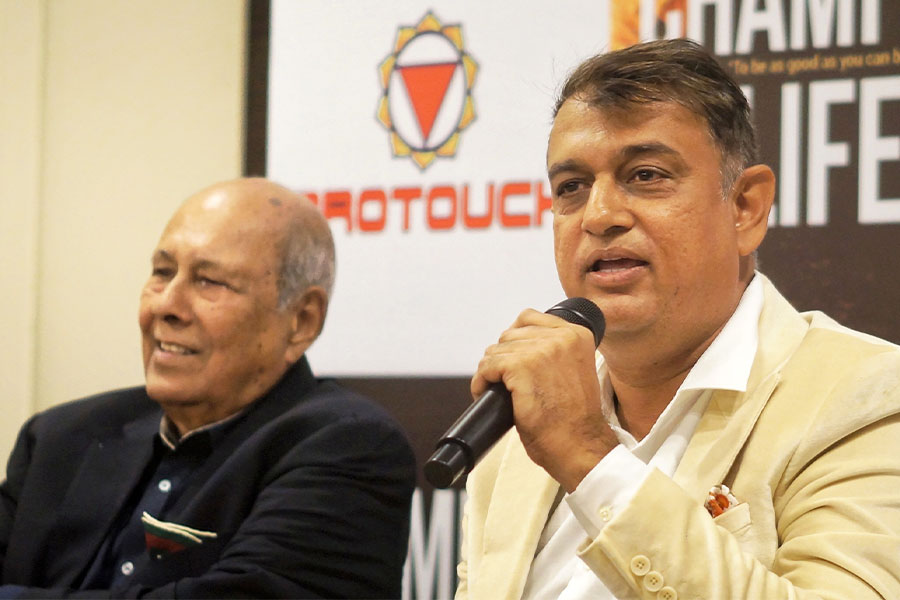
Coaching is mostly about motivation and technique, says Indrajit Soumyajit Dey
Segueing to coaching, what is the biggest issue with coaching in sport right now? Is it undercoaching youngsters or overcoaching them?
The biggest issue with coaching is when coaches think they know everything. They’re the ones who actually know nothing. Everyone’s become a mind coach, life coach or counsellor these days, especially after Covid-19. You’ve had failed relationships, you don’t get along with your parents, but you’re a life coach! Anyway, I believe that, in sport, 90 per cent is the player, 10 per cent is the coach. That 10 per cent is mostly about motivation and a bit of technique. For me, a coach is more of a mentor. Any coach who claims to ‘make’ a player is living in a fool’s paradise. As a coach, you can’t make another Tiger Woods, although you can ruin a potential Tiger Woods.
Your book mentions the need for an athlete to build their brand. What are the basics one must get right while building their brand as a sportsperson?
For starters, you can’t have very strong religious or political views. Because a potential sponsor may have different ideas. Sometimes building a brand is just about being a nice human being and showing your authentic self. A good example is Rahul Dravid. He’s naturally humble and that seeps into his brand. And then you also have examples like Yuvraj Singh, who’s far more flamboyant and is a cancer survivor, but has never been able to channelise his personality and his story into building his brand.
‘I don’t know too many Bengali families who will risk their child dropping out of school to pursue a career in sports’
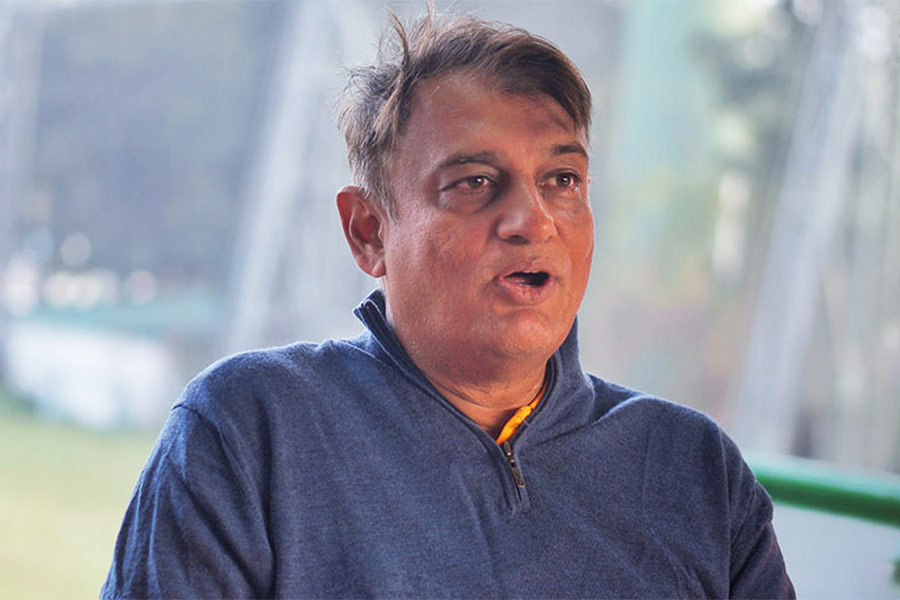
Kolkata and Bengal do not produce many great athletes because of a mindset problem, argues Indrajit TT Archives
As a local boy, what do you think Kolkata and Bengal need to do to produce more champion athletes?
I think it’s the mindset that needs to change. I consider myself as a 99.99 per cent Bengali, my surname aside. Bengalis tend to be conservative, peace-loving people. We like to discuss ideas rather than take risks or push ourselves, especially when in Bengal. You can’t be a champion athlete with that mindset. I don’t know too many Bengali families who will risk their child dropping out of school to pursue a career in sports. Which was the case with my family, too. The maternal side of my family never understood that one could make a career out of sports, let alone accepting it. The question always becomes about financial feasibility. It’s a bit like that in the West of the country, too. It’s the North that’s quite adventurous [about careers] and sometimes the South.
‘Every child dreams to be the best but many have no idea of what it takes’
What do you see as the goal of your book in terms of spreading a message?
To parents, my book should communicate whether their children have the drive that’s required to be a champion. To youngsters, I want the book to convey what it takes to be the best. Every child dreams to be the best but many have no idea of what it takes. You can’t play tennis for two hours a day and expect to be on the ATP Tour. You can’t play golf thrice a week and expect to be a PGA Tour player. Yes, you have to study, but you’ve got to figure out a way out to put in eight hours for your sport everyday. Many people I talk to water down their ambitions once they realise they can’t put in those eight hours. But I also know those who are happy doing that. They’re the ones who are eventually going to make it.
Time for some rapid fire questions. What is the best advice you have ever received?
It was from my father, when he said that whatever you do, give it your 100 per cent.
And the worst advice?
I don’t like it when people say go down fighting. Or something like: Even though you are going to lose, give them a fight. That’s the worst form of negative advice, because you have already accepted defeat and that is all that matters.
Should champions be sore losers?
Losing has to hurt. I don’t know about being a sore loser, but losing has to hurt your ego so that you push yourself harder.
Do champions need other champions to be better?
Champions can definitely feed off other champions. When champions train together, there’s a lot of positivity, too. Being around happy and positive people, whether champions or otherwise, always helps.
A superstition you cannot get rid of as a player.
I don’t like wearing yellow. I don’t know why, though!
‘I’d ask Federer how he could raise his game without getting visibly pumped up’
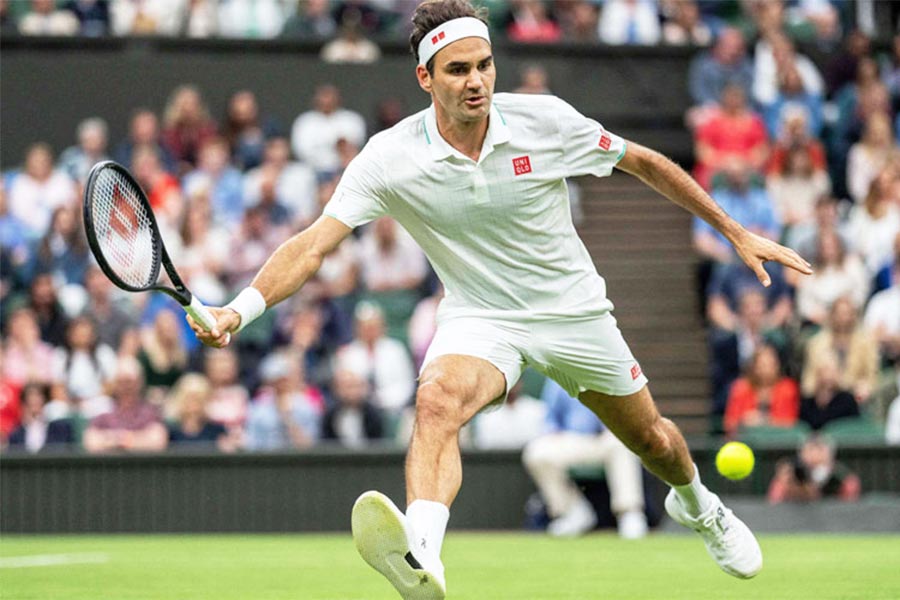
Roger Federer is one of three athletes Indrajit would love to have a tete-a-tete with TT Archives
Lastly, if you could meet any three athletes from past or present and have a conversation with them about sporting greatness, who would they be and why?
Roger Federer for one. I’d ask him how he could raise his game without getting visibly pumped up, especially against the likes of Rafael Nadal and Novak Djokovic, who are much more animated. Then, Jack Nicklaus, simply because he's the greatest golfer ever in my opinion. I’d really like to speak to John McEnroe to understand how he would throw such tantrums and still come up with great shots while his opponents would be left frazzled. Was he acting or would he be angry for real? I’ll also pick a fourth, which would be Andre Agassi. The reason being that his book, Open, is the best autobiography I’ve read.
